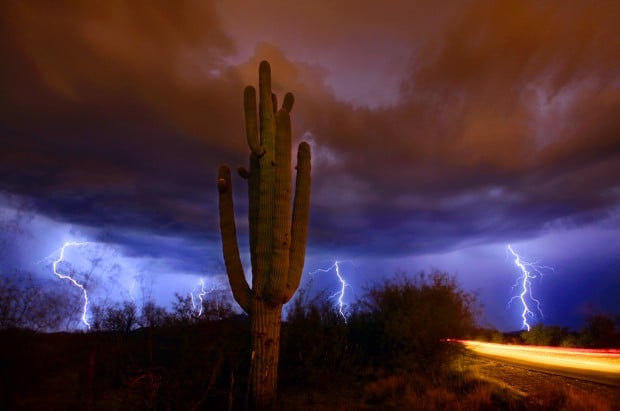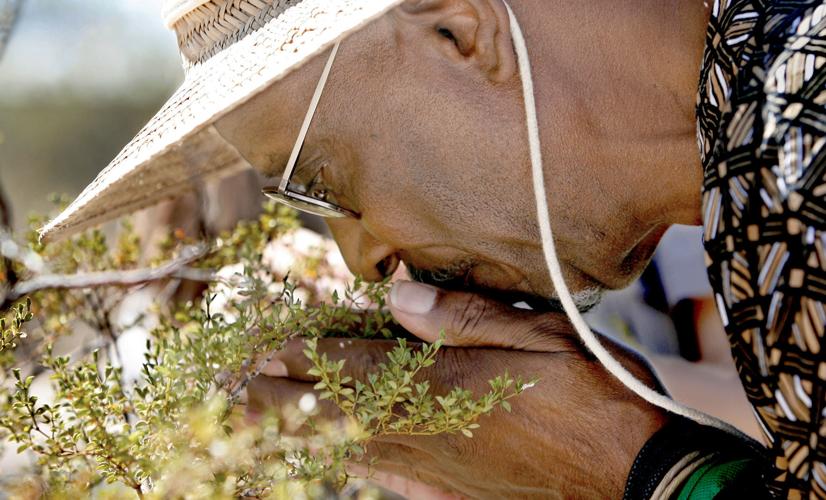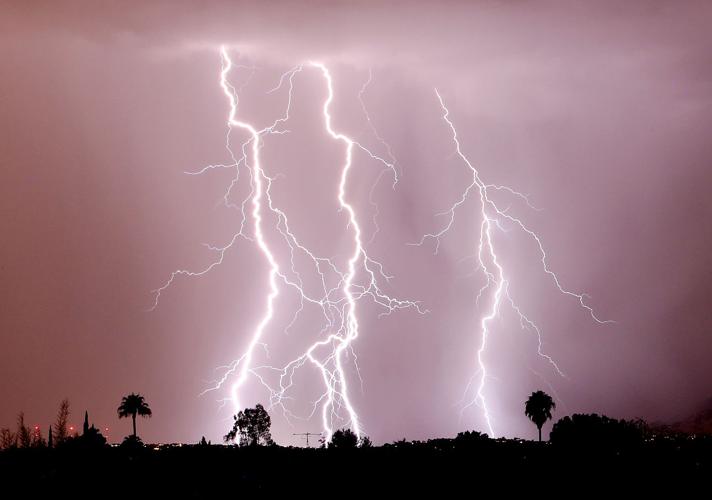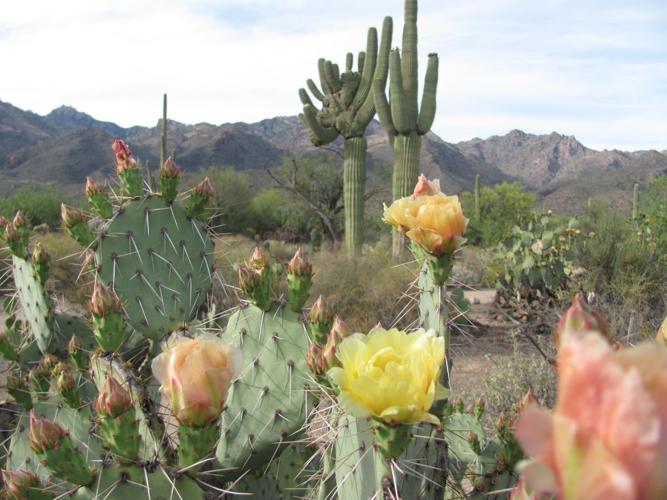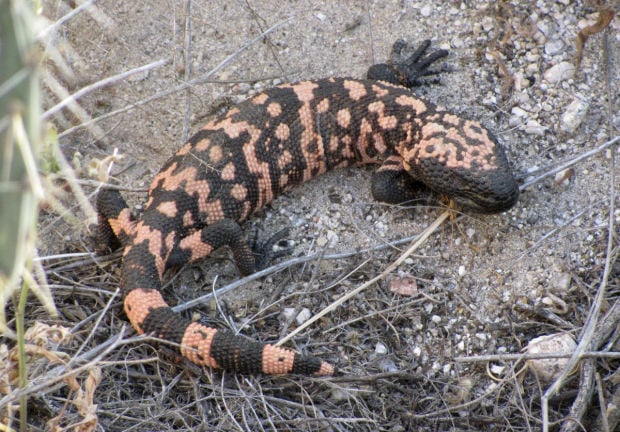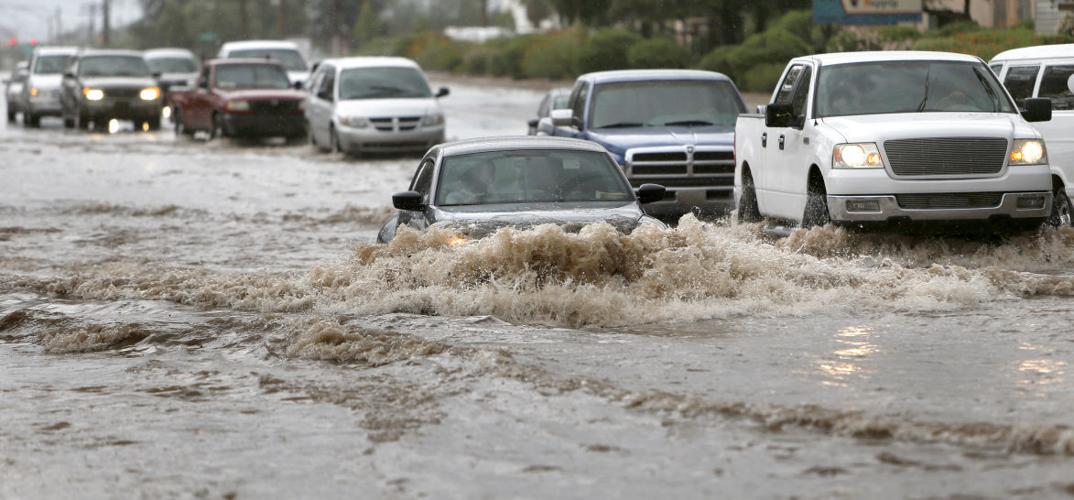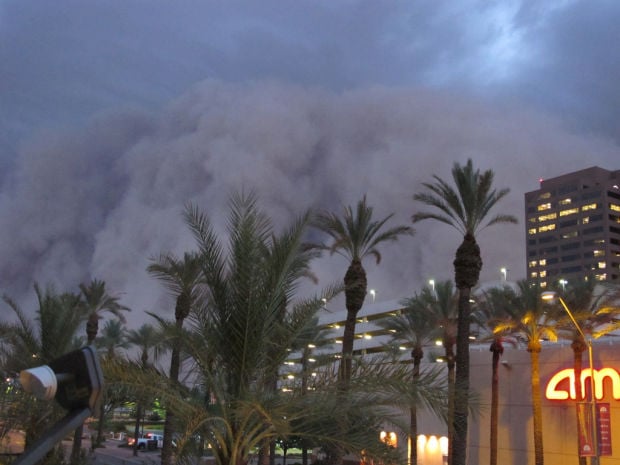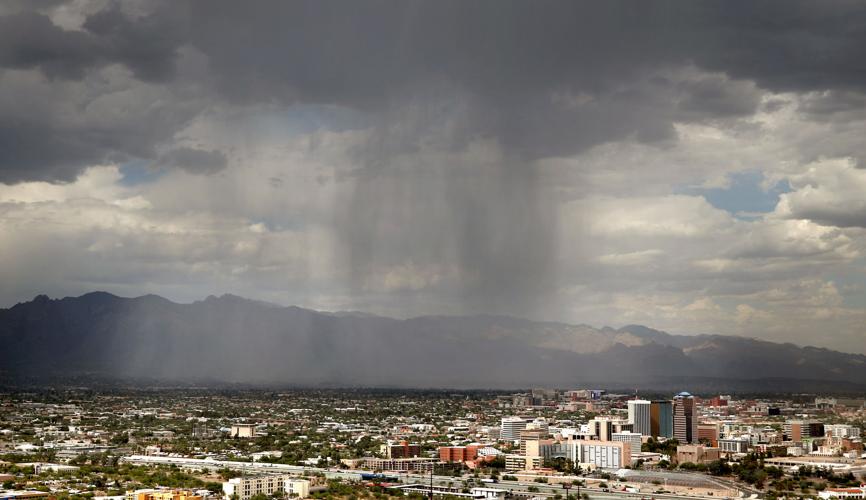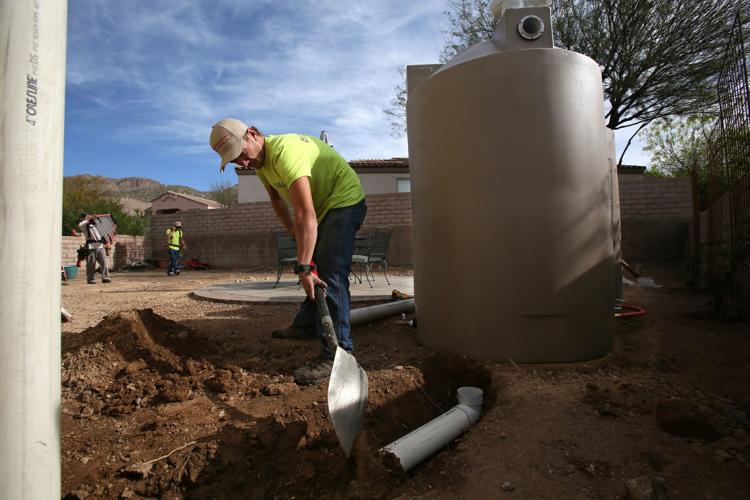Our favorite season is finally picking up some steam (or should we say humidity?), with a good chance of monsoon storms happening in the next few days. Before you start watching the clouds roll in, here are some cool facts and tips you need to know about the rainiest time of year.
1. When does monsoon start?
Since 2008, the National Weather Service has decreed a monsoon season from June 15 to September 30, but it still keeps track of the monsoon start by a measure it used from 1949 until 2008 — the first of three consecutive days with an average dewpoint of 54 or above.

A highly localized downpour in the foothills of Santa Catalinas just north of downtown as several small but intense cells dropped rain and high winds on the area during the first monsoon storm of the season, Wednesday July 5, 2018, Tucson, Ariz.
Also known as chubasco, the summer rains bring much-needed moisture and cooler evenings. Not to mention lightning, heavy rain, high winds, flash flooding, hail and dangerous driving conditions.
2. Driving tips

A Volkswagen Beetle driver braves a couple of feet of floodwater on Park Avenue at Pennsylvania that had bigger trucks and SUVs driving gingerly during a heavy monsoon storm moving that flooded southwest Tucson, Saturday, Aug. 22, 2015, Tucson, Ariz. Kelly Presnell / Arizona Daily Star
If you're caught in a severe storm and can’t drive safely, move completely off the road and stop with the lights off. Take your foot off the brake to make sure your brake lights are not lit. This prevents other drivers from following your tail-lights, thinking you're still on the road. Never stop in the travel portion of the road.
Pro tips: Replace your windshield wipers before the monsoons start and be sure to check the weather before traveling.
3. Be safe taking those awesome lightning photos

Lightning strikes on Tucson's westside during an evening monsoon. Photo taken Monday, Aug. 31, 2015. Mike Christy / Arizona Daily Star
On average 47 people die after being struck by lightning in the United States every year, according to the National Weather Service.
Monsoon lovers should take cover when watching storms from afar, most lightning strikes usually occur more than three mile away from the center of the thunderstorm, and have even been spotted as far as 15 miles. Some tips to stay safe during nature’s light show include, stay indoors when you hear thunder, avoid using plumbing and electrical equipment and keep your distance from windows.
You can keep track of lightning strikes recorded in your area at lightningmaps.org and power outages at tep.com.
4. Watch out for flash flooding

A gust of wind turns a man's umbrella inside out as he fords the flooded gutters of Tyndall Ave. just south of University during a heavy monsoon rain, Thursday, August 14, 2014.
If your neighborhood looks like it's underwater this time of year, there's a good chance it's because of flash flooding. We have floodplains and plenty of roads and washes that fill quickly with excess rainwater during a good storm.
Avoid getting swept away. Flash floods rank at the top of thunderstorm-related deaths, according to the National Weather Service.
Keep away from rivers and washes during heavy rains. If you're driving and see a flooded area, turn around and plan an alternative route. In most cases, it can be difficult to determine how deep the flood is, and moving water as low as one foot has the ability to carry a car.
Arizona's "Stupid Motorist Law" permits rescue agencies to collect up to $2,000 for water rescues if motorists get stuck after purposely driving in flooded areas.
If you're in a house that is prone to flooding, prepare by storing things above flood level and have items like sandbags and plastic sheeting at hand. It's also best to seek higher ground if possible.
Check out the Monsoon Safety website for more flash flood safety tips.
5. Get out of those dangerous dust storms
Any big thunderstorm with high winds, much like the ones seen during monsoon season, has the potential to to lift large amounts of dust into the air to form a haboob, or dust storm. And if you've ever seen a photo of an Arizona dust storm, you know they can get intense.

A dust storm known as a "haboob" restricts visibility in downtown Phoenix. The overheated weather of the future is likely to send the city more violent dust storms, packed with ever greater amounts of energy.
These storms cause problems for motorists as they can happen in a matter of seconds and severely decrease visibility on the road.
The Arizona Department of Transportation recommends that if you find yourself caught in a dust storm, check the vehicles around you and try pulling over to the side of the road as soon as possible and turn off your lights, stay in the car and keep your seatbelt on until the dust storm passes — this can last anywhere from a few minutes to an hour, according to the National Weather Service.
6. Say hello to your desert neighbors

Gila monster seen along a trail at Ventana Canyon.
Expect to see more Gila monsters come out to play on nights of high humidity. According to the Arizona-Sonora Desert Museum, Gila monsters live in washes that extend down into the valley. They aren't the only ones either, tarantulas and a wide variety of bugs love this time of year too.
Don't freak out, they're just out enjoying the weather like everyone else.
7. Monsoon season scent

John Durfield, a retiree from Oregon, leans over to smell a creosote bush at Saguaro National Park.
Have you ever wondered why it smells so good after a rainy day? The smell actually comes from the creosote bush, which has medicinal properties.
It's a plant unique to Tucson and other dry regions like the Mohave Desert and the Chihuahuan Desert. The plant releases that familiar musky, earthy smell from a coating on its leaves that helps it conserve water."
Tucsonans love it. It's nostalgic because it smells like monsoon season. Ironically, the Spanish name for creosote is hediondilla, which loosely translates to little stinker.
While you’re waiting for the rain to hit or can’t get enough of the smell, buy yourself some creosote-scented lotion or ointment.
8. End of Monsoon is the beginning of prickly pear season

Blooming prickly pear cacti add a splash of color near a crested saguaro in Sabino Canyon.
With plentiful rain comes the beautiful green vibrancy of the Sonoran Desert and the ruby red fruit of the prickly pear cactus. This unique fruit, called a “tuna” grows from the pads of the cactus, creating an amazing edible crown, that’s ready to harvest in September. Tunas are used in a variety of foods and products, but some of our favorites include the prickly pear margarita at Reforma Cocina y Cantina, jellies and lip balm.
But we’re getting ahead of ourselves, learn how to harvest them here.
9. It's a great time to collect rainwater

Rob Bartlett of Southern Arizona Rain Gutters buries PVC pipe that feeds rainwater from gutters to two 500-gallon tanks at a home in Arizona National, northeast of Tucson.
Water from the monsoon storms will definitely fill up those cisterns around town, so much so rainwater collectors can typically use their supplies long after the season is over. If you're interested in setting you your own rainwater collection system, take a look at this Arizona Daily Star article to see how to started.
10. You can follow the Tucson Monsoon on Twitter

Yep, this is a thing. And it’s awesome. You can talk one on one with @ElTucsonMonsoon about everything from rain gauges to weather jokes. But mostly it’s a lot of taunting hot Tucsonans.
Now let's stay safe and enjoy the weather.


